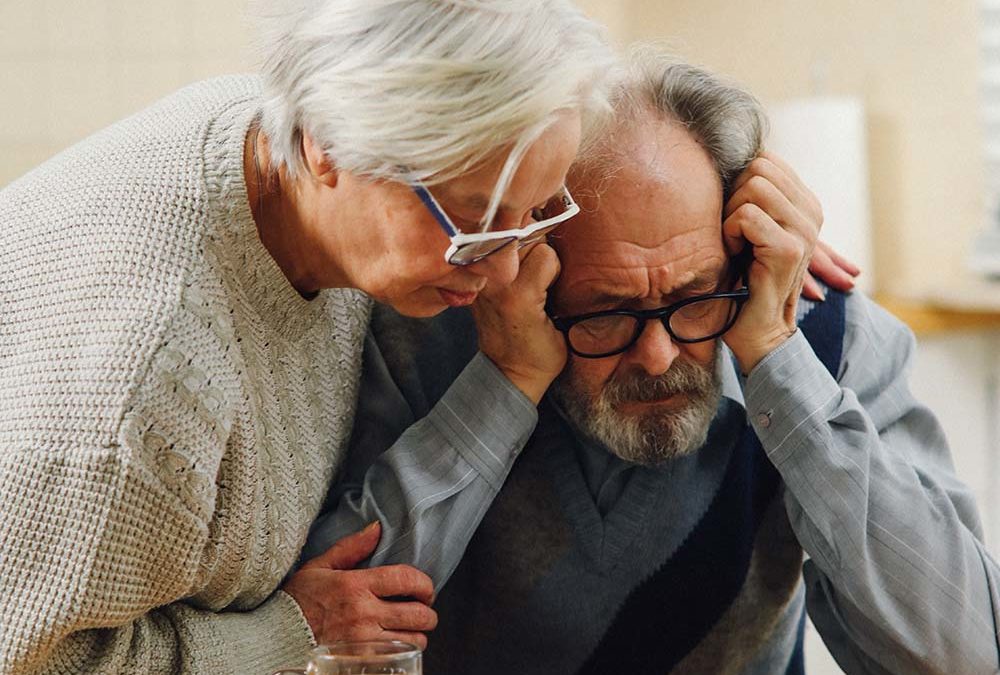The world faced the global outbreak of the coronavirus, in early 2020, which was declared a pandemic by the World Health Organization (WHO). While the virus affected healthy adult individuals with a mortality rate being 3 to 5%, the risk for those above the age of 60 is almost three times higher. This can be attributed to the fact that pre-existing conditions or chronic diseases such as hypertension, diabetes, neurological problems or psychiatric conditions among the elderly increased the severity of the coronavirus. (Brown et al., 2020).
Beginning with the state of complete novelty, doing social isolation was of utmost importance as a preventive measure as the virus was known for its capability for human transmission. This drastic sudden change in lives very evidently impacted human lives from all aspects, waves of anxiety, insecurity and depression was seen to have a huge rise. Along with this peaked mortality risk and the strict restrictions that were imposed to mitigate the virus, heightened psychological stress and anxiety was seen in the elderly population. Conditions contributing to their heightened stage of anxiety included prolonged periods of quarantine leading to feelings of loneliness and anger (Xiang et al., Lancet Psychiatry, 2020), apprehension about the future, expectations regarding their needs predisposed the old people to stress. They experienced reduced access to support and activities as the covid protocol required them to stay at home. The elder generation also felt a ‘digital divide” with their limited access to technology (Yang et al., 2020). All over the world, the pandemic was correlated with the increase in post-traumatic stress disorder, generalized anxiety disorder and depression in older age group people.
As per studies, a large group of people from this age group have either contracted symptoms of anxiety, depression or shown signs of relapse due to social disconnection, therefore this worked as a catalyst for this negative spiral, leading to seclusion (Santini et al., 2020). If the people from the old age group continue to stay in this negative spiral, they tend to aggravate their anxiety and depression symptoms and levels, even more, impacting their mental state severely.
Thus, increasing the consideration of impaired mental health conditions among the elderly globally is of extreme significance in the present time of a pandemic. Identifying the manifestations of anxiety among older people is very important, as it often remains unrecognized and undertreated, severely impacting their physical health, decreasing their ability to perform daily activities and their psychological well-being. Health policymakers’ collaboration to create and implement quality and accessible services is required for alleviating mental health conditions and any further damage to the elderly’s health.
Therefore, it is crucial to improve the psychological well-being of elderly people. They can do so by continuing their daily life activity such as the continuous use of their medication, few physical activities within the home, practising other activities of painting or singing which enriches their lives and most importantly open channels of communication with friends and family during this period can help to maintain their mental health. (Lim et al., Geriatr Gerontol, 2020). In recent times various organizations and companies too have addressed this concern and have come up with their own initiatives, especially for the older generation. Get Set Up is one such online platform that provides opportunities for learning new skills, connecting with people in a safe, social and interactive environment. Caremerge partnered with Spiro100 is another such platform that aims to provide fitness and wellness for the people of this age group, they hold supplement exercise classes with guided meditation, some remote activities to stimulate the mind, virtual events to boost social wellness in lieu of in-person connection along with opportunities for their spiritual fulfilment. The American Association of Retired Person (AARP) has a wide variety of games aimed to interest the seniors; other sites Memozor has puzzles meant to improve and sustain recall and Lumosity provides brain training intended to target an array of cognitive skills for the elderly.
– Urveez Kakalia and Annesha Datta.

